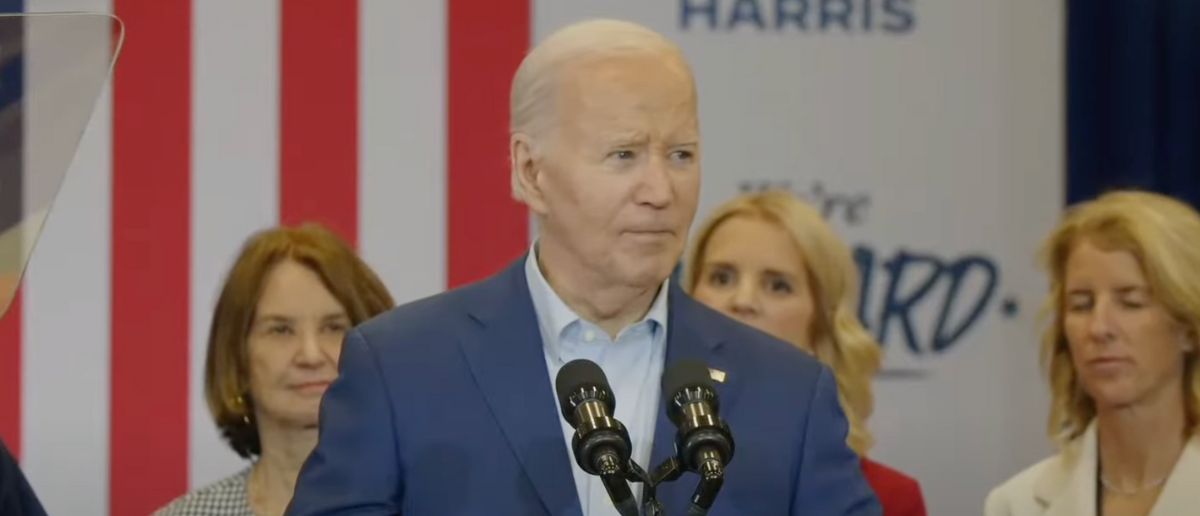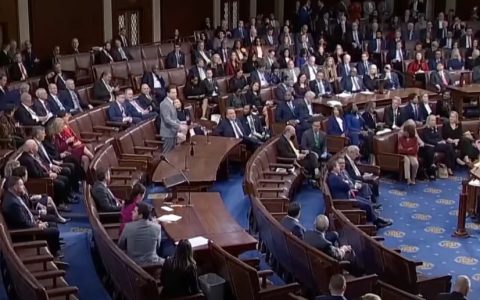
The White House is desperate to hide its tracks. But it’s too late.
And now Washington, D.C. has been rocked to its core after this report of Biden funding an Iranian terrorist hit the public.
A recent revelation claims that an engineer from an Iranian university connected to the nation’s nuclear program received funding from the Biden administration’s Department of Energy (DOE) for energy-related projects.
A study on cutting-edge technologies that could assist power grids in going green has the DOE’s Solar Energy Technologies Office (SETO) named as the sponsoring agency. Mohammad Hasan Ravanji, one of the seven scientists listed as co-authors of the study, teaches electrical engineering at Iran’s Sharif University of Technology (SUT), an institution that has received sanctions from multiple Western nations due to its support of the nation’s nuclear ambitions and ties to the armed forces.
The report, Grid-Forming Inverter-Based Resource Research Landscape: Understanding the Key Assets for Renewable-Rich Power Systems, was released on February 23 in the Power and Energy Magazine by the Institute of Electrical and Electronic Engineers.
Daniel Roth, the head of research for United Against Nuclear Iran (UANI), shared with reporters, “The issue here is that a U.S. federal agency is apparently collaborating with a widely-sanctioned university which is one of the worst actors in Iran’s academic space.”
“Regardless of whether this explicitly has been used to advance Iran’s nuclear centrifuges is beside the point … This shouldn’t have happened in the first place. And we’re not talking about a collaboration on James Joyce or English literature. It’s about science and technology, and obviously those often have dual uses.”
In 2021, the DOE declared that it will provide $25 million in public resources to support a Golden, Colorado-based “Grid Forming Research Consortium.” The same grant funds several other studies, and it is mentioned in a document released by the group that receives funding from the DOE.
According to his LinkedIn profile, Ravanji worked as a researcher and PhD student at SUT from 2013 to 2020. He then attended Monash University in Australia for almost two years. After that, in January 2023, he went back to SUT to take a position as an assistant professor, more than a year before the DOE-sponsored study that gave him credit was released.
The governments of the United States and other Western countries have sanctioned SUT in whole or in part.
SUT’s “cooperation agreements with Iranian Government organizations which are designated by the UN and/or the EU and which operate in military or military-related fields, particularly in the field of ballistic missile production and procurement” in relation to Iran’s nuclear weapons program are the basis for the EU’s additional sanctions against SUT.
Furthermore, SUT has received complete government sanction in the United Kingdom, whereas SUT’s engineering department has received government sanction in Canada.
SUT’s significance to the Iranian government, which the State Department has identified as the world’s top state sponsor of terrorism, has long been emphasized by critics, as has the regime’s role in the nation’s nuclear aspirations. Two investigators at the James Martin Center for Nonproliferation Studies characterized SUT as a “nuclear procurement front” that was “central” to the Iranian regime’s “program to acquire the capability to enrich uranium to weapons grade” in a 1997 report on Iran’s nuclear program that was published in the journal of the organization.
Organization UANI (United Against Nuclear Iran) expressed their worries about the grant money in a letter dated March 25 to Martin Keller, President of the National Renewable Energy Laboratory (NREL), and Energy Secretary Jennifer Granholm. The letter was sent in light of SUT’s known involvement with the cutting edge of the Iranian military scientific efforts.
Furthermore, during a Senate Armed Forces Committee hearing on Wednesday, Republican Senator from Iowa Joni Erst questioned Jennifer Granholm of UANI directly regarding the award.
“Secretary Granholm, should taxpayer dollars be granted to U.S.-sanctioned countries or institutions, yes or no?” U.S. Senator Ernst asked during the hearing.
“Through DOE? No,” Granholm replied.
“Thank you. Because as you know, the Department of Energy distributes billions of dollars in grants and awards. And in February, a magazine published a research article acknowledging support from a taxpayer-funded DOE award,” Ernst declared. “The same article credits an Iranian researcher employed by Iran’s state-linked Sharif University of Technology. U.S. authorities have sanctioned multiple Sharif University entities due to their ties to Iran’s nuclear program. Britain and the E.U. have also sanctioned the university due to similar concerns. So, Secretary Granholm, did taxpayer dollars in this grant support the Iranian researcher?”
Granholm said, “I’m not familiar with this grant, but perhaps you can share the article and I can follow up.” She then agreed to write Ernst a letter addressing the issue.
American tax dollars should never help arm Iran. pic.twitter.com/HS5AmVp4Wx
— Joni Ernst (@SenJoniErnst) April 17, 2024
The Tracking Receipts to Adversarial Countries for Knowledge of Spending (TRACKS) Act, which would mandate the keeping of records and disclosure of every dollar of government cash sent to organizations in hostile countries like China, Iran, and Russia, is also being sponsored by Ernst in the Senate.
Stay tuned to the DC Daily Journal.





